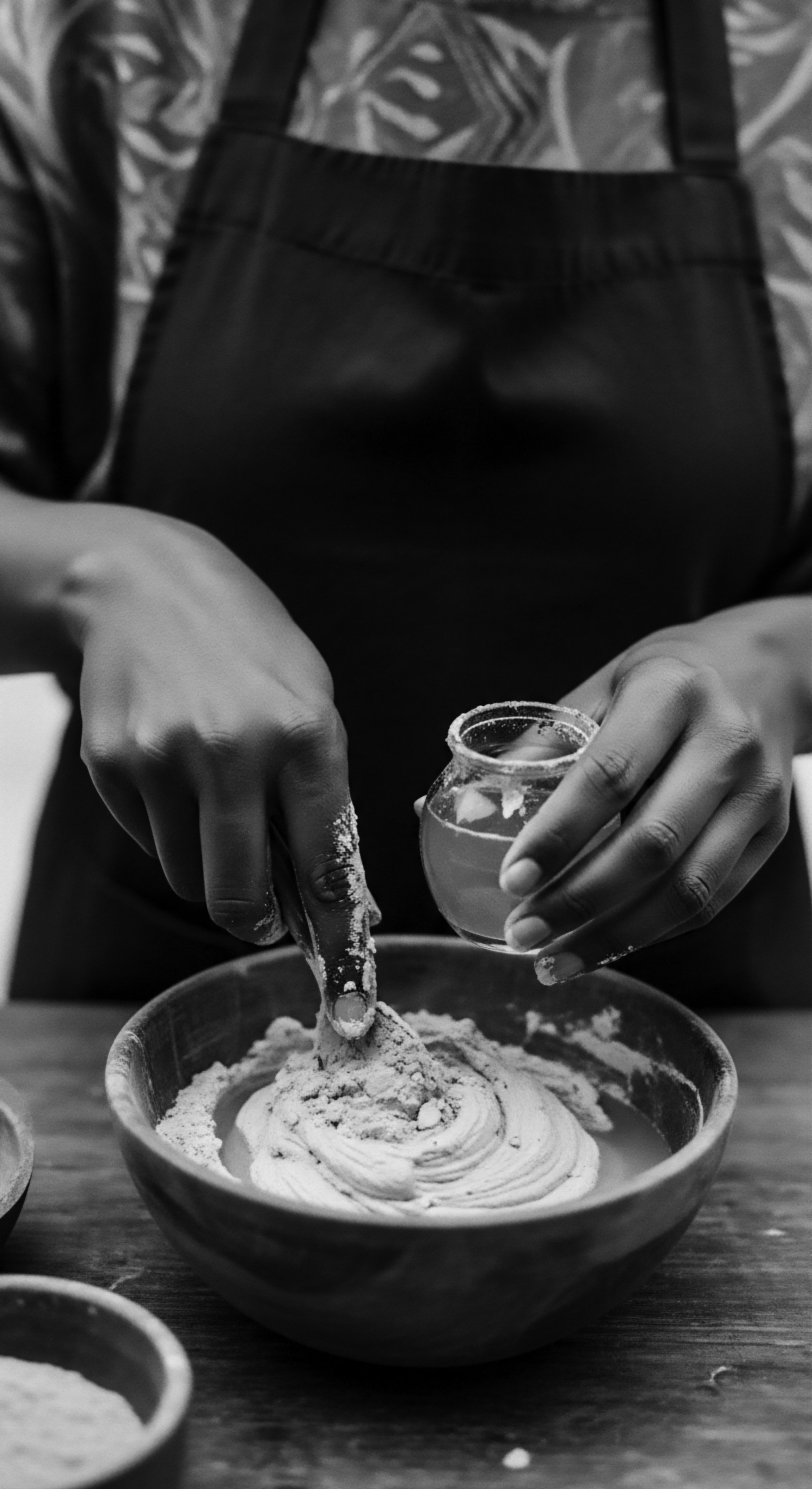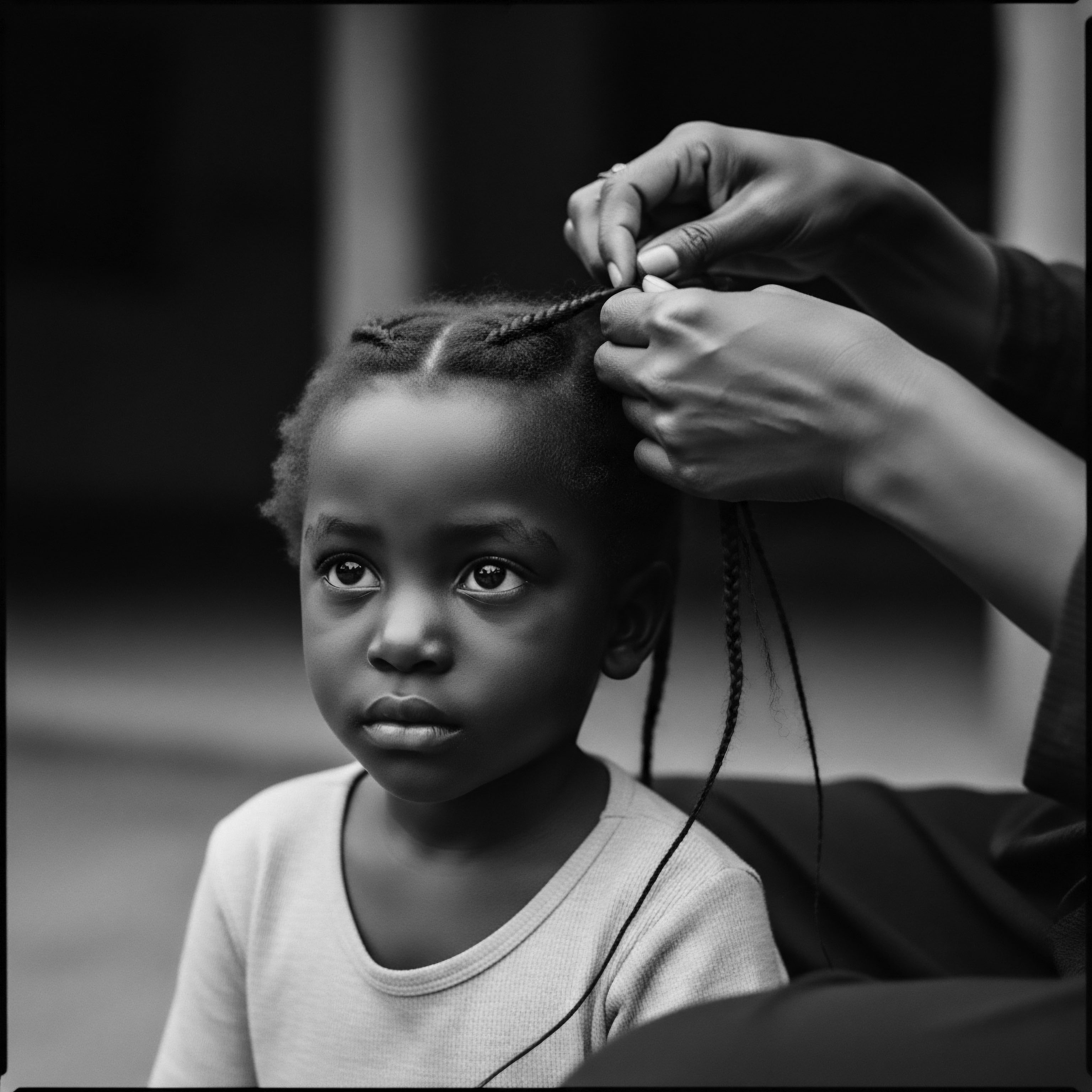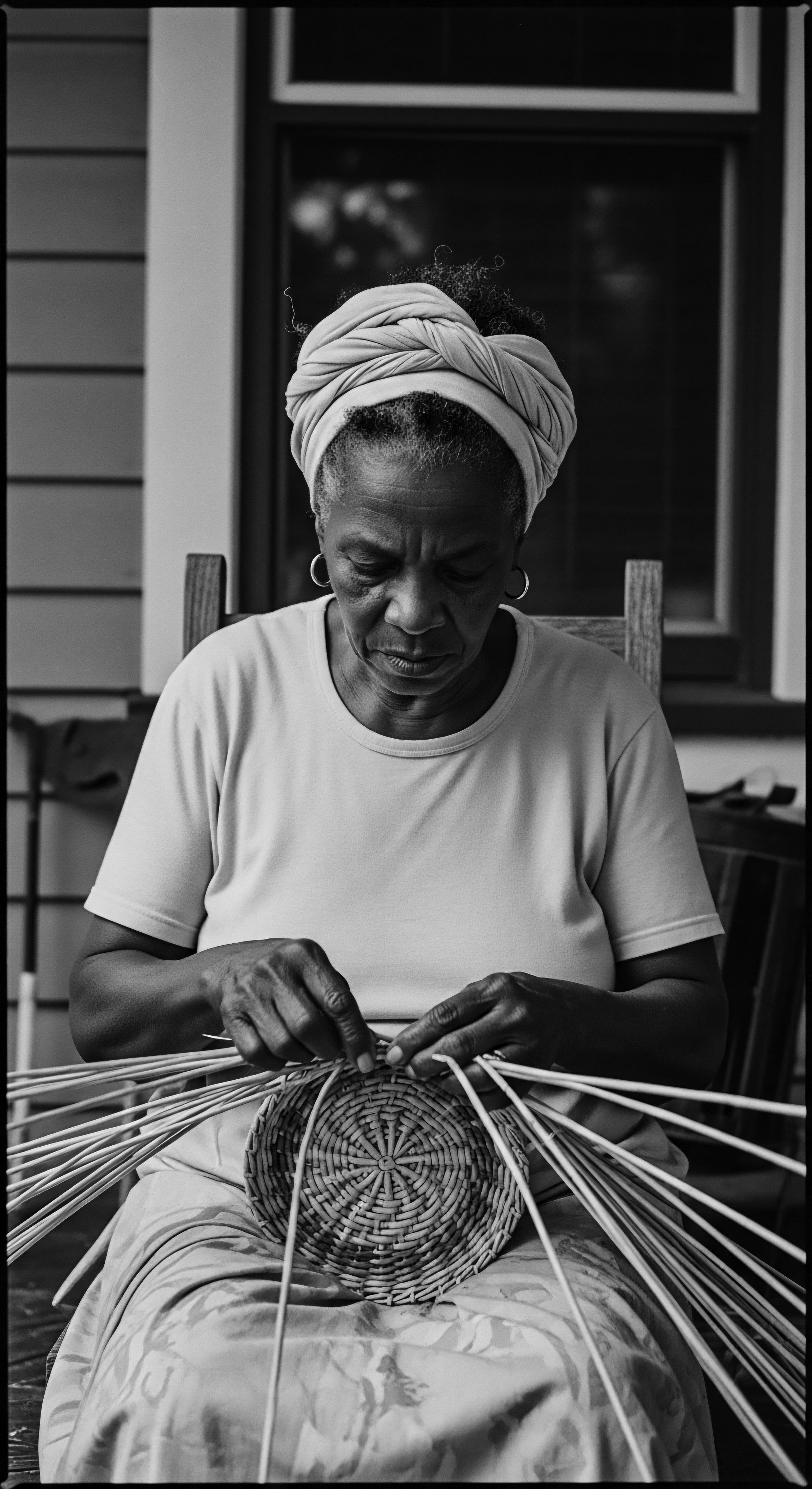
Fundamentals
The essence of Clove Oil, extracted from the aromatic flower buds of the Syzygium aromaticum tree, resonates with ancient wisdom and serves as a testament to nature’s enduring gifts. This botanical treasure, deeply rooted in the soil of the Moluccas, also known as the Spice Islands of Indonesia, has traveled across continents and centuries, embedding itself into the very fabric of traditional healing and beauty practices around the globe. Its fundamental identity lies in its derivation: the careful steam distillation of the dried flower buds, sometimes even the leaves and stems, yields a potent liquid gold.
At its core, the simple meaning of Clove Oil speaks to its primary composition, with eugenol standing as the dominant compound, often comprising a significant portion of its makeup. This natural constituent grants Clove Oil its distinctive, warm, and spicy aroma, familiar to kitchens and apothecaries alike. Beyond its sensory appeal, this compound is scientifically acknowledged for its properties, offering a bridge between the whispers of ancient remedies and the clarity of contemporary understanding.
The initial understanding of Clove Oil within heritage contexts, particularly for hair, rests on its observable effects. Ancestral communities, long before the advent of modern microscopes, recognized its capacity to invigorate the scalp and contribute to the vitality of hair. This observational knowledge, passed down through generations, shaped early care rituals. The oil’s intrinsic nature, with its stimulating and warming attributes, suggested its role in promoting a thriving environment for hair to prosper.
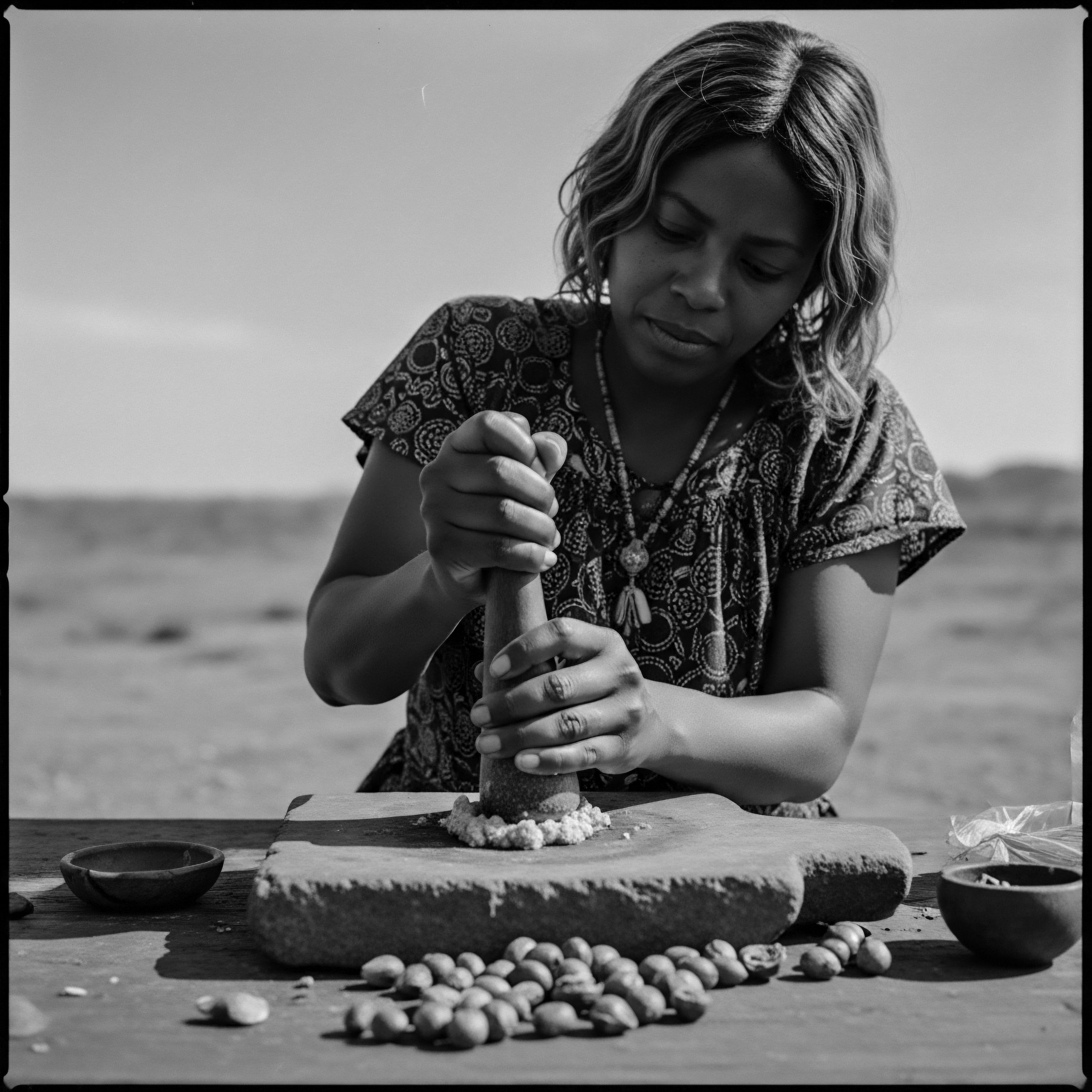
The Earliest Echoes of Recognition
The story of Clove Oil for hair begins not in laboratories, but in the communal spaces where wisdom was shared and beauty rituals performed. Ancient civilizations, recognizing the plant’s distinct qualities, began incorporating dried cloves and their derivatives into various applications. These early practices were often intertwined with a holistic view of well-being, where external applications were believed to support internal harmony.
For instance, records suggest the use of cloves in traditional Chinese medicine and Ayurveda, the ancient Indian system of medicine, for over two millennia. While specific hair applications of Clove Oil itself from these earliest periods might not be as widely documented as its dental or digestive uses, the presence of cloves in broader health and cosmetic contexts signals a general awareness of their therapeutic potential. The understanding of Clove Oil, therefore, first emerged from a reverence for natural botanicals and their perceived ability to restore balance to the body and its crowning glory.
Clove Oil, extracted from the vibrant flower buds of the Syzygium aromaticum tree, embodies centuries of traditional wisdom concerning holistic wellness and hair vitality.
Traditional practices often involved infusing whole cloves into carrier oils such as coconut or olive oil. These herbal blends then became a part of regular grooming rituals, applied directly to the scalp and hair. This approach underscores a foundational principle in ancestral hair care: the belief in nourishing the scalp as the true source of healthy hair growth.
- Direct Application ❉ Infused oils, applied with gentle massage, aimed to stimulate the scalp and promote circulation.
- Scalp Tonics ❉ Simple clove water rinses were prepared by steeping dried cloves in hot water, then allowed to cool before being applied to the scalp and strands.
- Herbal Blends ❉ Cloves found their way into multi-ingredient concoctions alongside other revered herbs, each chosen for its complementary properties.
The fundamental meaning of Clove Oil, then, extends beyond its chemical makeup; it encompasses the reverence for an ingredient that has long been perceived as a gift from the Earth, offering gentle support for hair health, even for those new to natural care practices.
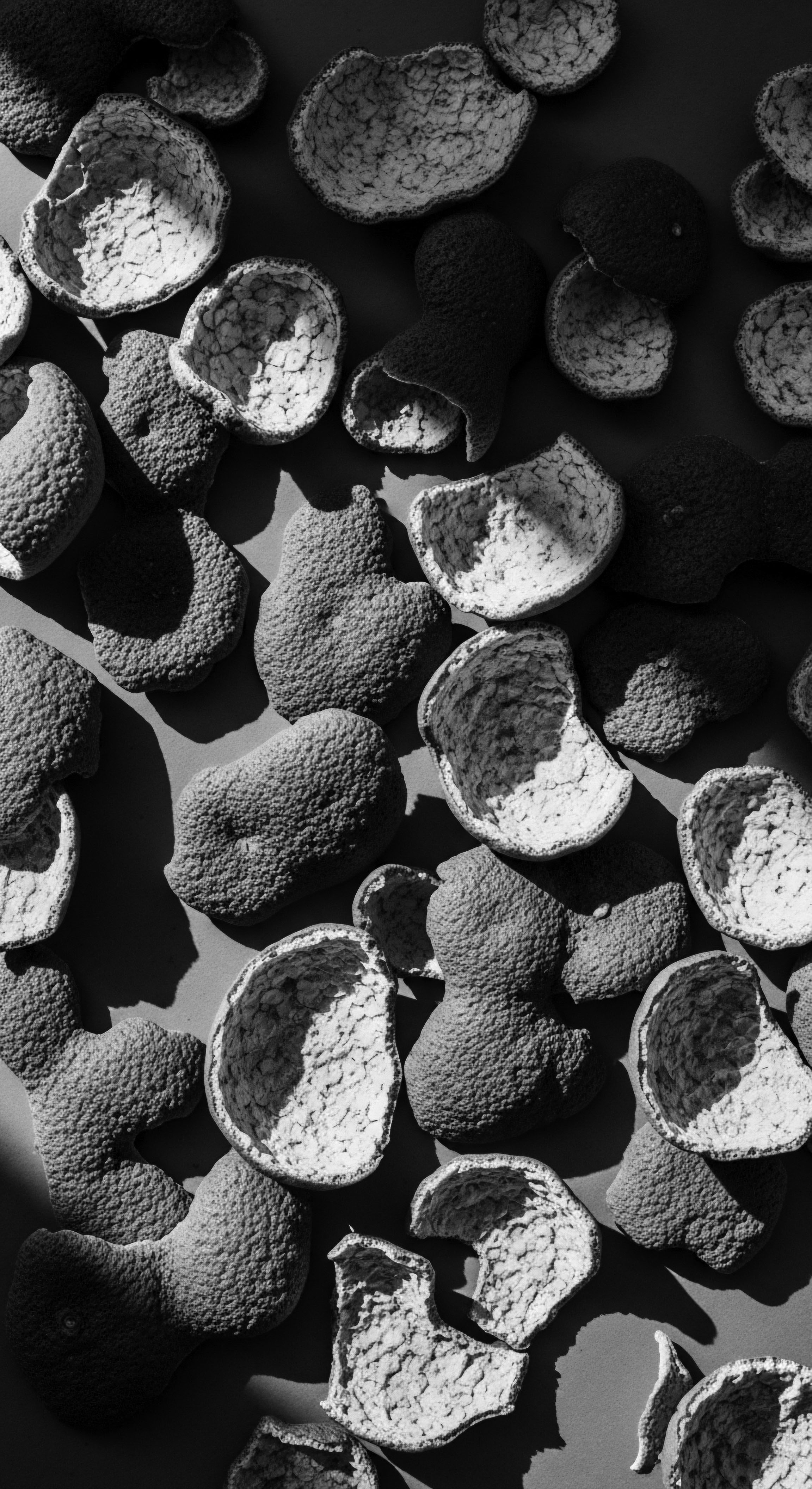
Intermediate
Moving beyond the basic comprehension, the intermediate meaning of Clove Oil for textured hair deepens our understanding by exploring its historical trajectory and its nuanced role within various cultural practices. This liquid legacy, derived from the dried flower buds of Syzygium aromaticum, carries a complex history, intertwined with trade routes, medicinal systems, and the intimate rituals of personal care across diverse communities. The oil’s significance, therefore, extends beyond its physical properties to its symbolic and cultural import, particularly for Black and mixed-race hair experiences.
Historically, cloves, and by extension their extracted oil, journeyed from their Indonesian homeland through ancient trade networks, reaching China and India over two millennia ago. Subsequently, Arab merchants facilitated their arrival in Europe by the fourth century A.D. This extensive global circulation allowed the knowledge of cloves and their uses to disseminate and adapt within different cultural contexts, including those in Africa and the African diaspora.
The very acquisition of this spice spurred economic development in some Asian regions for centuries (Pereira et al. 2013).
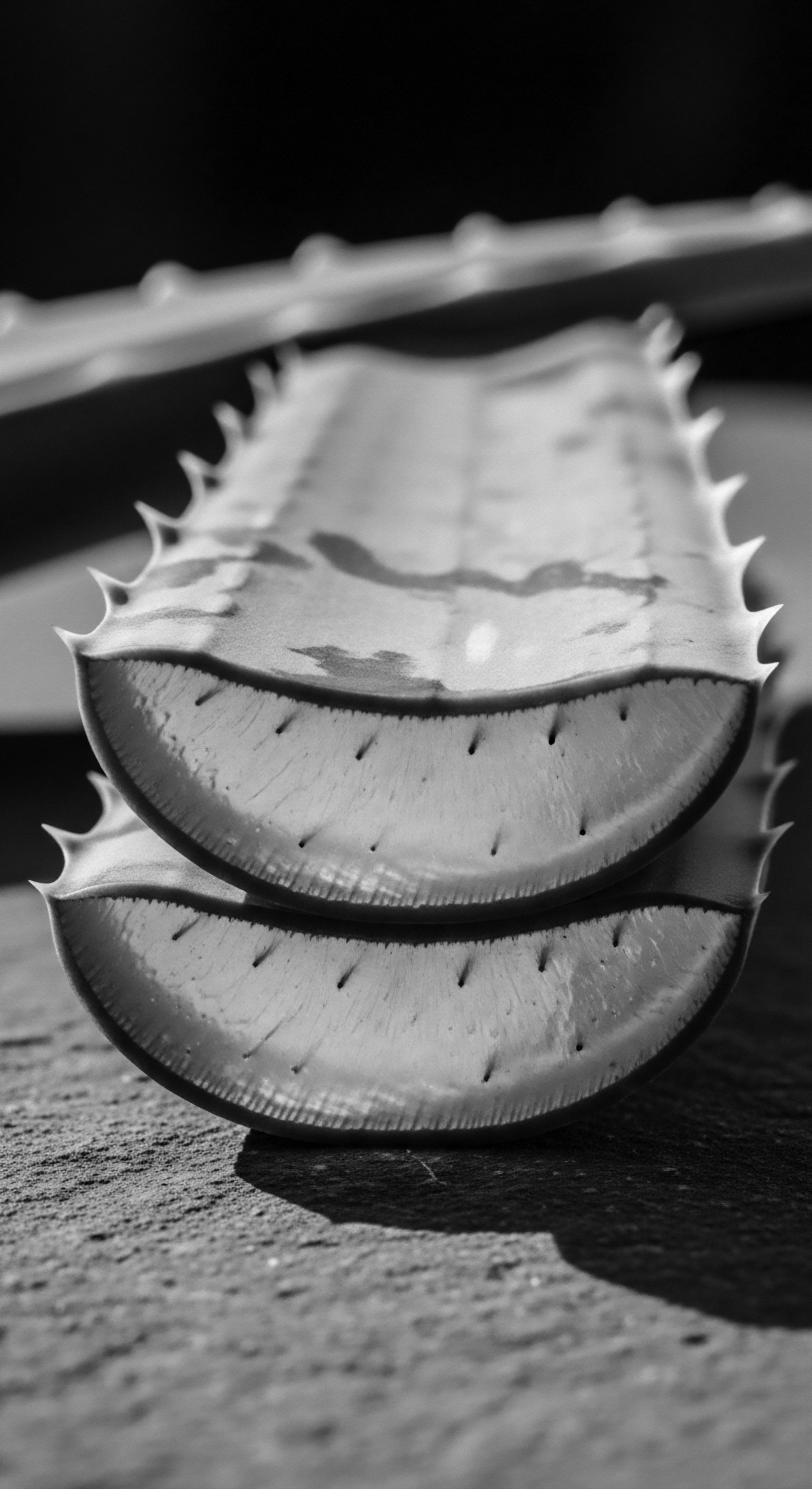
Cultural Currents and Hair Care Traditions
Within various heritage traditions, Clove Oil’s properties were observed to align with the specific needs of textured hair. Hair, in many African and diasporic cultures, holds profound cultural and social meaning, often serving as a marker of identity, status, and spirituality. The care of such hair was, and continues to be, a sacred practice, requiring ingredients that offer deep nourishment, protection, and strength.
The antioxidant, antimicrobial, and anti-inflammatory attributes of Clove Oil were instinctively appreciated by ancestral practitioners. Textured hair types, prone to dryness and breakage due to their unique coil patterns, require consistent moisture retention and a healthy scalp environment. The application of infused oils, including those with cloves, became a cornerstone of these care routines, serving not merely as cosmetic enhancements but as vital components of hair preservation and scalp well-being.
The journey of Clove Oil mirrors the expansive cultural exchanges that allowed ancient hair care wisdom to adapt and endure across global communities.
Consider the practices prevalent in various African communities, where hair maintenance often involves natural oils and butters to seal in moisture and protect strands. Clove Oil’s ability to stimulate blood circulation in the scalp and reduce inflammation made it a valuable ingredient in tonics and massages aimed at creating an optimal environment for hair growth. This practical application underscores its sustained relevance across generations.
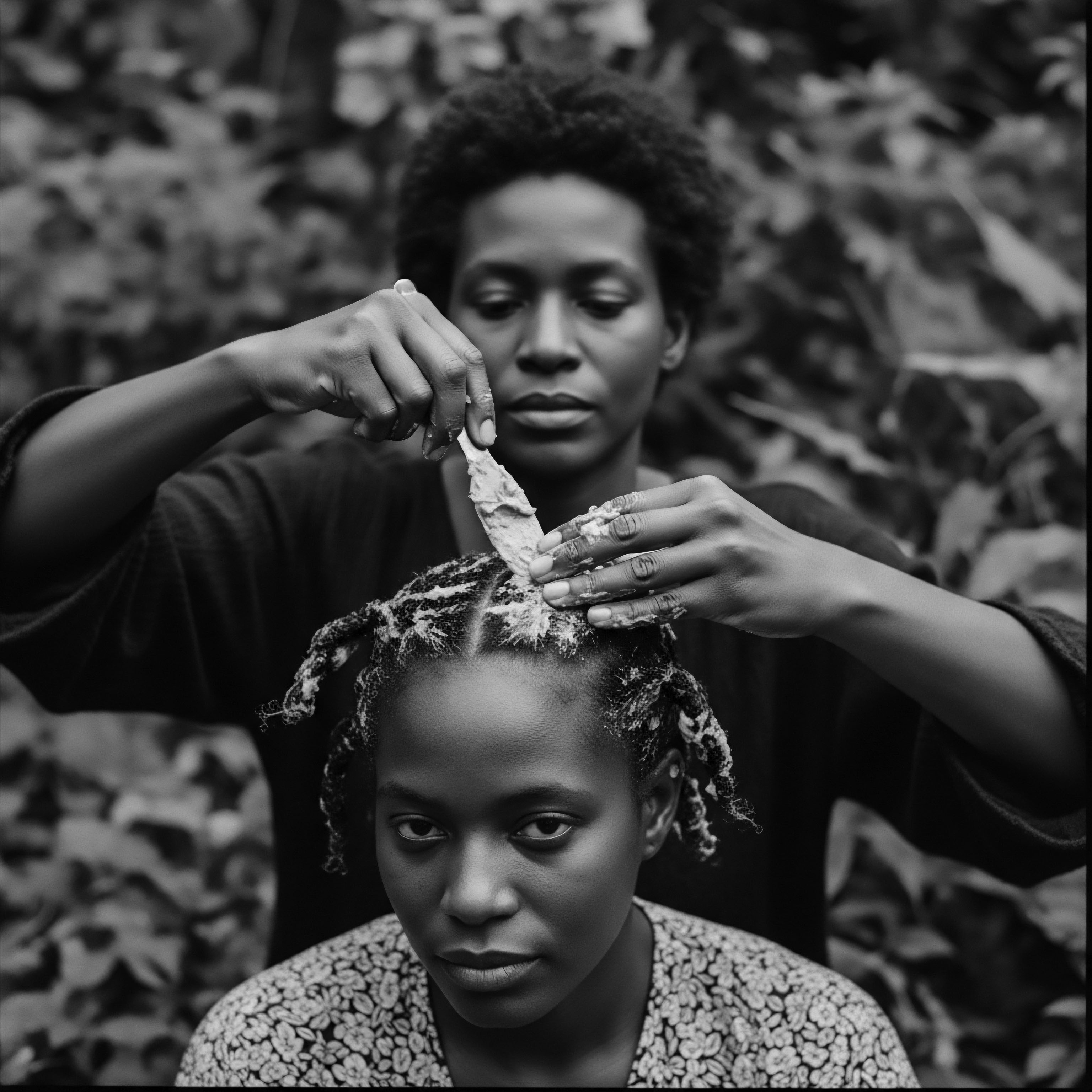
Diverse Applications across Heritage Lines
The use of Clove Oil, or whole cloves, in hair care is not confined to a singular cultural expression; it adapts and integrates.
The use of Clove Oil in hair care traditions is not merely incidental. It represents a conscious selection by ancestral communities, informed by generations of observations and hands-on experience. This deeper reading of Clove Oil’s significance reveals a continuous thread of human ingenuity and reverence for nature’s offerings, woven into the cultural fabric of hair care. The intermediate understanding calls for an appreciation of the active role this ancient spice has played in preserving the vitality and identity of textured hair across time and geography.

Academic
The academic understanding of Clove Oil, specifically Syzygium aromaticum essential oil, transcends superficial benefits to delve into its biochemical foundations and its profound historical implications within human societies, especially concerning textured hair heritage. This elucidation requires rigorous examination of its phytochemistry, pharmacological activities, and ethnobotanical record, drawing connections between ancient wisdom and contemporary scientific validation. The definition and meaning of Clove Oil, from an academic vantage point, encompasses not just its botanical classification and chemical composition, but also its historical agency as a valued commodity and its enduring role in ancestral hair care practices, particularly within Black and mixed-race communities.
Clove Oil’s primary bioactive compound, eugenol, constitutes a remarkable 72-90% of its essential oil content, imparting the characteristic aroma and the majority of its therapeutic properties. Beyond eugenol, it contains other phenolic compounds like eugenyl acetate and beta-caryophyllene, along with vitamins and minerals such as beta-carotene (a precursor to Vitamin A), Vitamin C, Vitamin K, calcium, iron, sodium, and potassium. These constituents collectively contribute to Clove Oil’s well-documented antioxidant, antimicrobial, anti-inflammatory, and analgesic properties.

Phytochemical Efficacy and Hair Follicle Dynamics
From a scientific lens, the application of Clove Oil to the scalp influences hair health primarily through its effect on the follicular microenvironment. The rich antioxidant profile, largely due to eugenol, combats oxidative stress, a process implicated in various hair concerns, including premature graying and hair thinning. Oxidative stress can damage hair follicle cells, disrupting the hair growth cycle. By neutralizing free radicals, Clove Oil assists in maintaining the integrity of these vital cells, supporting sustained growth.
Furthermore, its anti-inflammatory actions are crucial for scalp health. Chronic scalp inflammation, often a precursor to conditions like seborrheic dermatitis and certain forms of hair loss, can impede nutrient delivery to hair follicles. Clove Oil’s capacity to soothe irritation and reduce inflammatory responses fosters a more conducive environment for healthy hair growth.
The observed enhancement of blood circulation to the scalp following massage with diluted Clove Oil further underscores its physiological meaning for hair vitality, ensuring follicles receive adequate oxygen and nutrients. This improved circulation is a cornerstone of hair growth stimulation and overall scalp health, a benefit recognized by ancestral practices and affirmed by modern physiological understanding.
Academic inquiry reveals Clove Oil as a potent botanical agent, whose traditional applications for hair care are increasingly validated by its rich phytochemical composition and therapeutic actions on scalp and follicle health.
The antimicrobial and antifungal properties of Clove Oil also bear significant weight in its academic definition for hair care. Scalp conditions like dandruff, often caused by fungal overgrowth (e.g. Malassezia globosa), can lead to itching, discomfort, and weakened hair.
Clove Oil’s active compounds help in managing these microbial imbalances, contributing to a clean and healthy scalp. This cleansing action prevents product buildup and impurities, which can hinder hair growth and lead to irritation, particularly relevant for the denser, coily textures often requiring careful cleansing without stripping moisture.
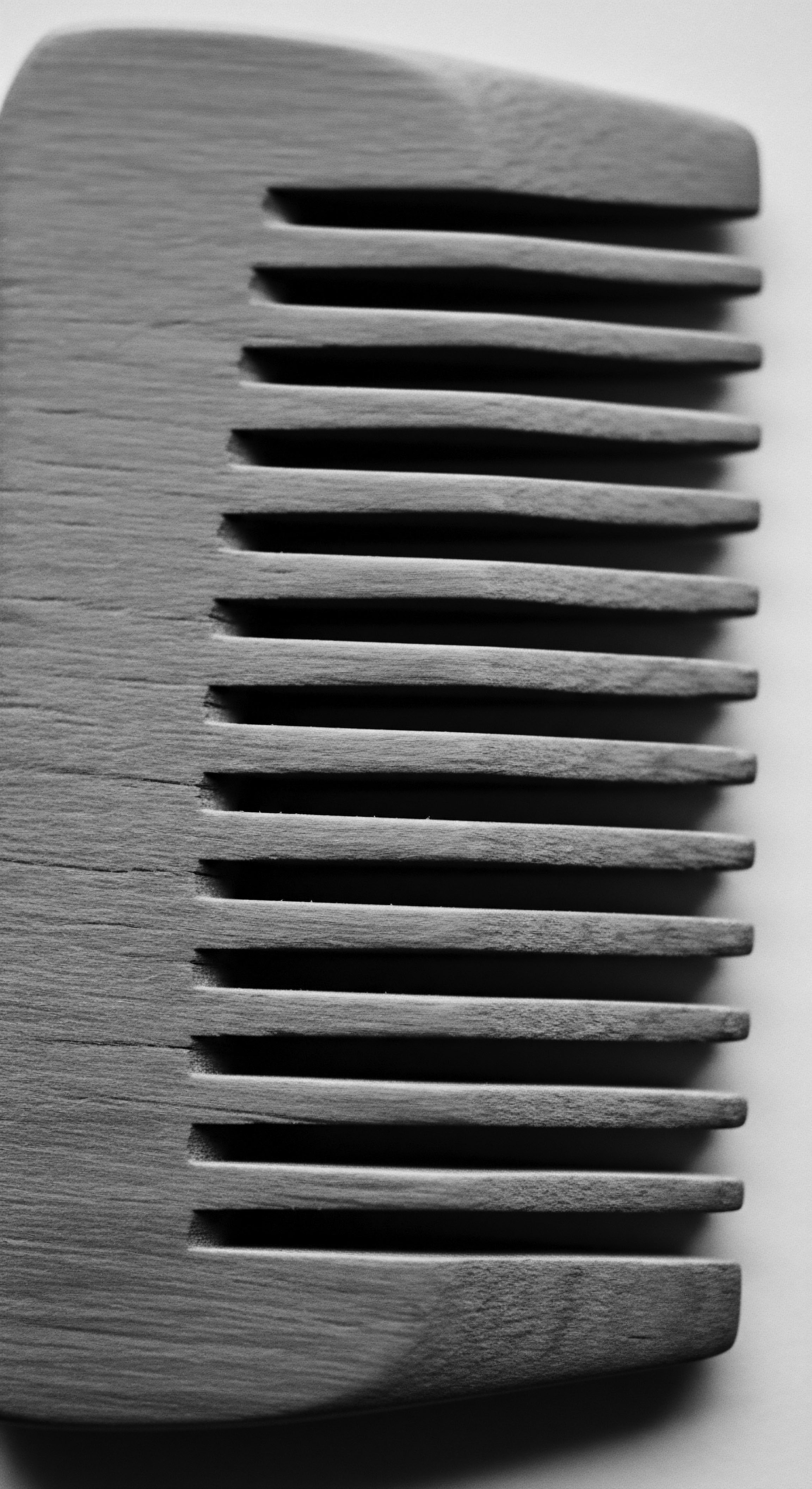
Ancestral Practices and Scientific Affirmation: The Basara Arab Women of Chad
To truly grasp the academic meaning of Clove Oil within the context of textured hair heritage, we must examine specific ethnobotanical instances where its role has been historically profound. A compelling example arises from the hair care traditions of the Basara Arab women of Chad, a nomadic ethnic group renowned for their exceptionally long, thick, and healthy hair, often extending well past their waist. Their ancestral practices involve a unique hair remedy known as Chebe powder, which has been passed down through generations. This powder, a blend of natural herbs, seeds, and plants indigenous to Chad, prominently includes cloves (Syzygium aromaticum).
The application method involves mixing Chebe powder with oils or butters and applying it to damp, sectioned hair, which is then braided and left for days. This ritual is repeated regularly, serving a dual purpose: it coats and protects the hair from breakage while sealing in moisture. Critically, Chebe powder does not directly stimulate hair growth from the scalp in the manner of a growth serum.
Instead, its primary function, supported by the presence of ingredients like cloves, is in length retention. By strengthening the hair shaft, reducing split ends, and improving elasticity, the mixture helps kinky and coily hair types ❉ which are inherently drier and more prone to breakage ❉ to grow longer over time without breaking off (ChebeUSA, 2025).
This traditional Chadian practice powerfully illuminates Clove Oil’s connection to textured hair heritage. The inclusion of cloves within Chebe powder is not arbitrary. Its anti-inflammatory properties, attributed to compounds such as eugenol, assist in soothing the scalp, creating a healthier environment that reduces the chances of inflammation-induced breakage, especially relevant for densely packed curls.
The antimicrobial nature of cloves also contributes to a clean scalp, mitigating issues like dandruff and itchiness that can undermine length retention. The academic meaning here is multifaceted: it highlights the ingenious empirical knowledge of ancestral communities who selected ingredients based on observed efficacy, and it demonstrates how modern phytochemistry provides a framework for understanding the mechanisms behind these long-held hair care secrets.
The continuous use of cloves within the Chebe tradition signifies a deep ancestral understanding of protective care for textured hair. This is not merely anecdotal; it represents a living ethnobotanical legacy where specific plant materials, including cloves, were chosen for their tangible benefits in combating the unique challenges faced by curly and coily hair. The long-term consequences of such practices are evident in the historical accounts of the Basara Arab women’s hair length and health, providing a compelling real-world case study for the protective and strengthening role of cloves within a traditional hair care system.
From a broader academic perspective, Clove Oil’s historical significance extends beyond hair. As early as 1720 BC, archaeological findings in Terqa, Syria, reveal cloves used in a burned-down house, predating Roman times (Buccellati, 1978). This discovery underscores the ancient value and widespread distribution of cloves as a precious commodity. For the Basara Arab women, the integration of cloves into their hair traditions speaks to a localized adaptation and innovation, utilizing readily available botanical resources in ways that directly addressed the needs of their hair type, solidifying its meaning within their cultural identity.
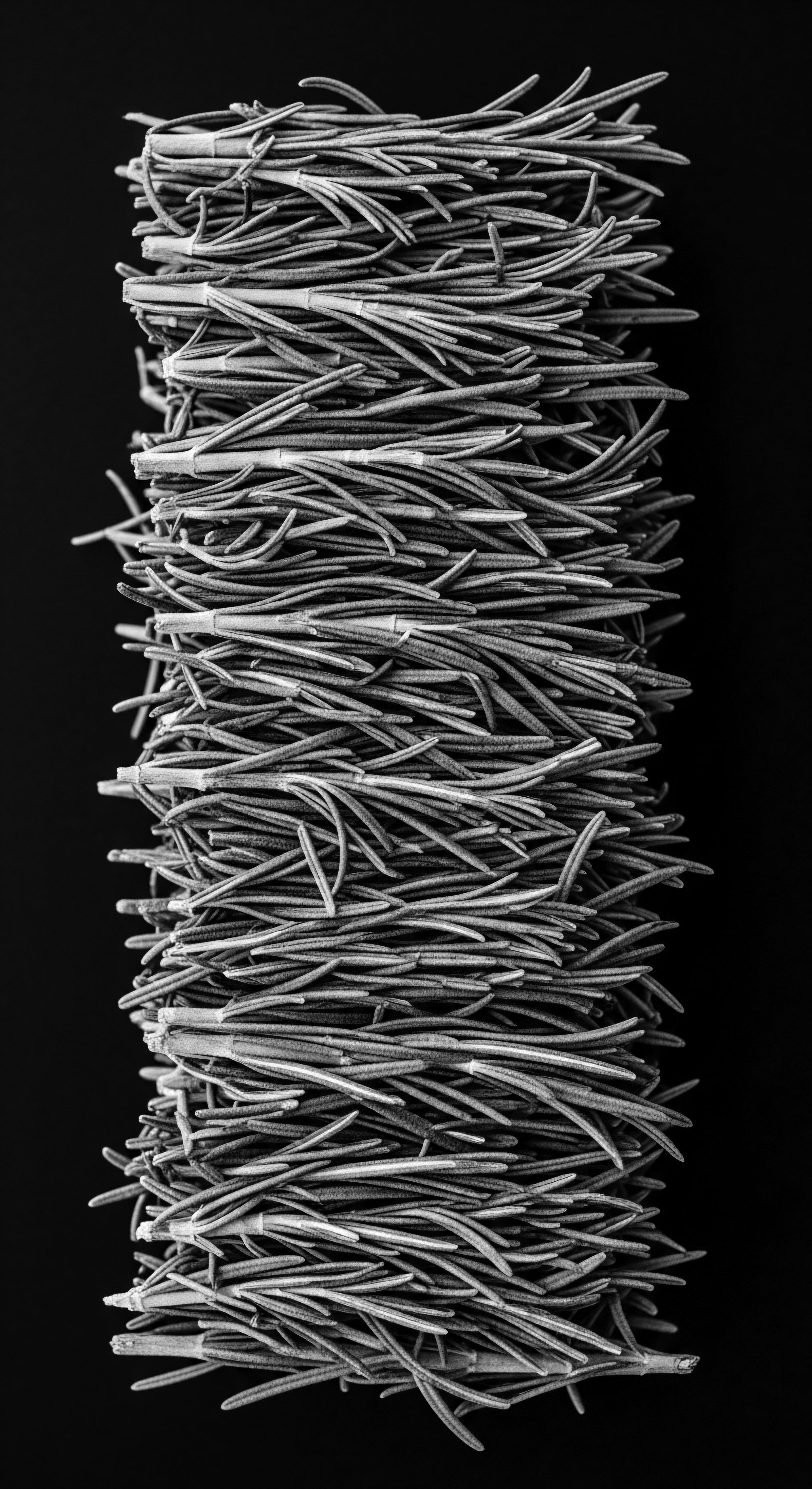
Interconnectedness of Ancestral and Modern Understanding
The interplay between traditional knowledge and contemporary scientific investigation offers a richer understanding of Clove Oil’s relevance.
- Botanical Identity ❉ Syzygium aromaticum, the source plant, carries a biological identity with inherent properties that have been observed and utilized across millennia.
- Chemical Characterization ❉ The isolation and study of eugenol and other compounds provide a molecular explanation for the benefits long witnessed by traditional users.
- Ethnobotanical Documentation ❉ Recording ancestral practices, such as the Basara Arab women’s use of Chebe powder with cloves, bridges historical context with modern scientific inquiry, offering avenues for further research and validation.
- Physiological Mechanisms ❉ Understanding how Clove Oil impacts blood circulation, oxidative stress, and microbial balance provides a deeper scientific appreciation for its traditional applications in scalp and hair health.
Thus, the academic definition of Clove Oil is not static; it is a dynamic concept continuously shaped by the interplay of historical accounts, cultural contexts, and ongoing scientific inquiry, each informing the other to reveal the comprehensive meaning of this botanical marvel.
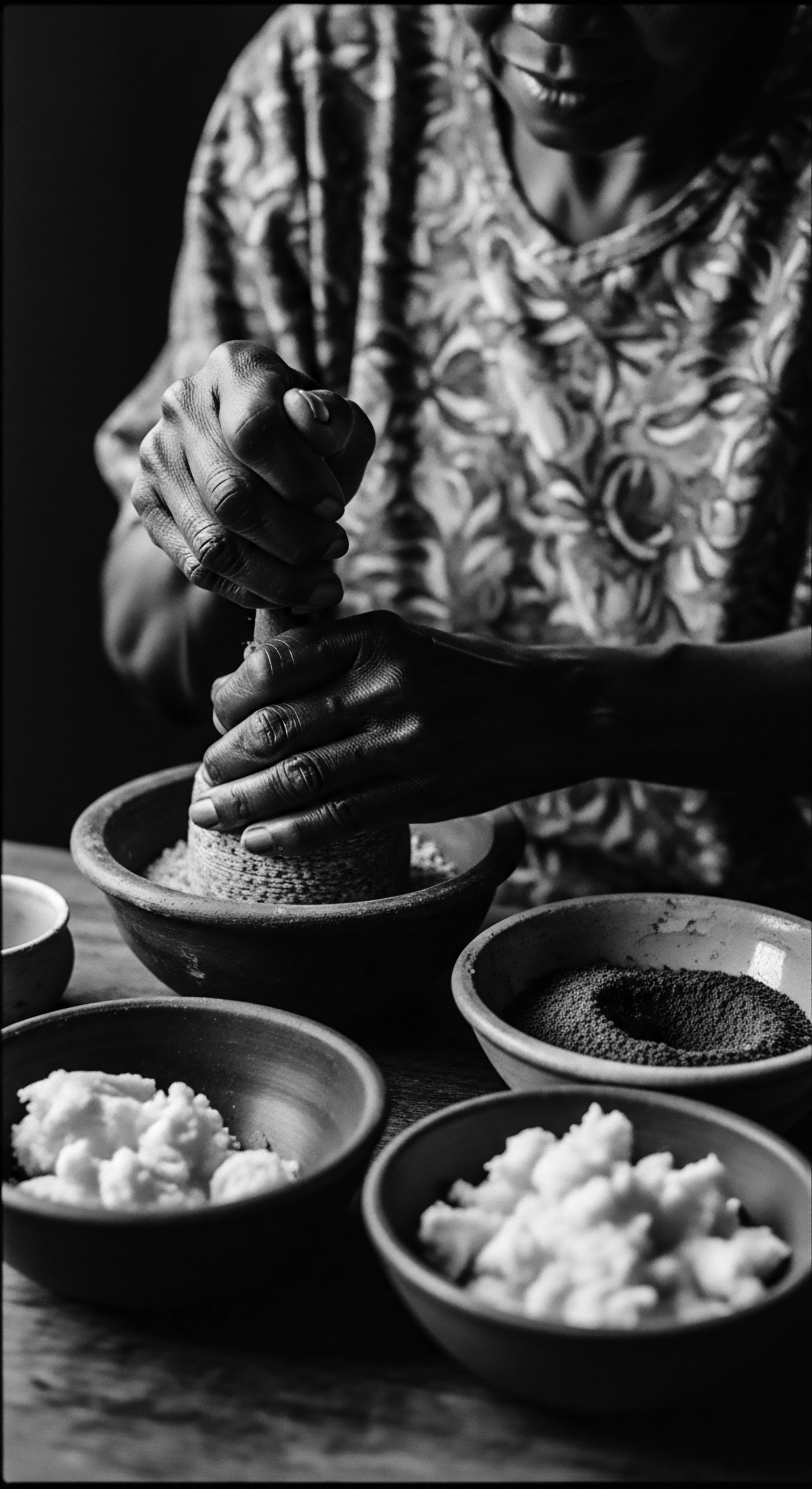
Reflection on the Heritage of Clove Oil
To contemplate the heritage of Clove Oil in the context of textured hair is to engage in a profound meditation on interconnectedness. The journey of this humble spice, from its island origins to the intricate care rituals of Black and mixed-race communities, reflects a narrative far grander than mere botanical function. Each application, whether a gentle massage of infused oil into a tender scalp or a component within a cherished ancestral blend, carries the whispers of generations past.
This botanical, Clove Oil, therefore, holds a mirror to the ingenuity and resilience of those who, with limited resources, cultivated a deep understanding of the natural world to care for their hair ❉ a crowning expression of identity and heritage. The warmth of clove, its stimulating aroma, and its tangible benefits against environmental stressors or scalp imbalances, became companions in the lifelong endeavor of nurturing textured strands. It speaks to a wisdom that often predates formalized science, a wisdom rooted in observation, experience, and the communal transmission of knowledge.
Clove Oil’s enduring presence in textured hair care is a quiet testament to ancestral ingenuity, a legacy passed through generations.
The story of Clove Oil, then, extends beyond its chemical compounds. It embodies the tender thread that connects us to ancestral practices, reminding us that true wellness often finds its beginnings in the simple, yet potent, gifts of the earth. This connection allows us to appreciate our hair not just as a physical attribute, but as a living archive of our collective past.
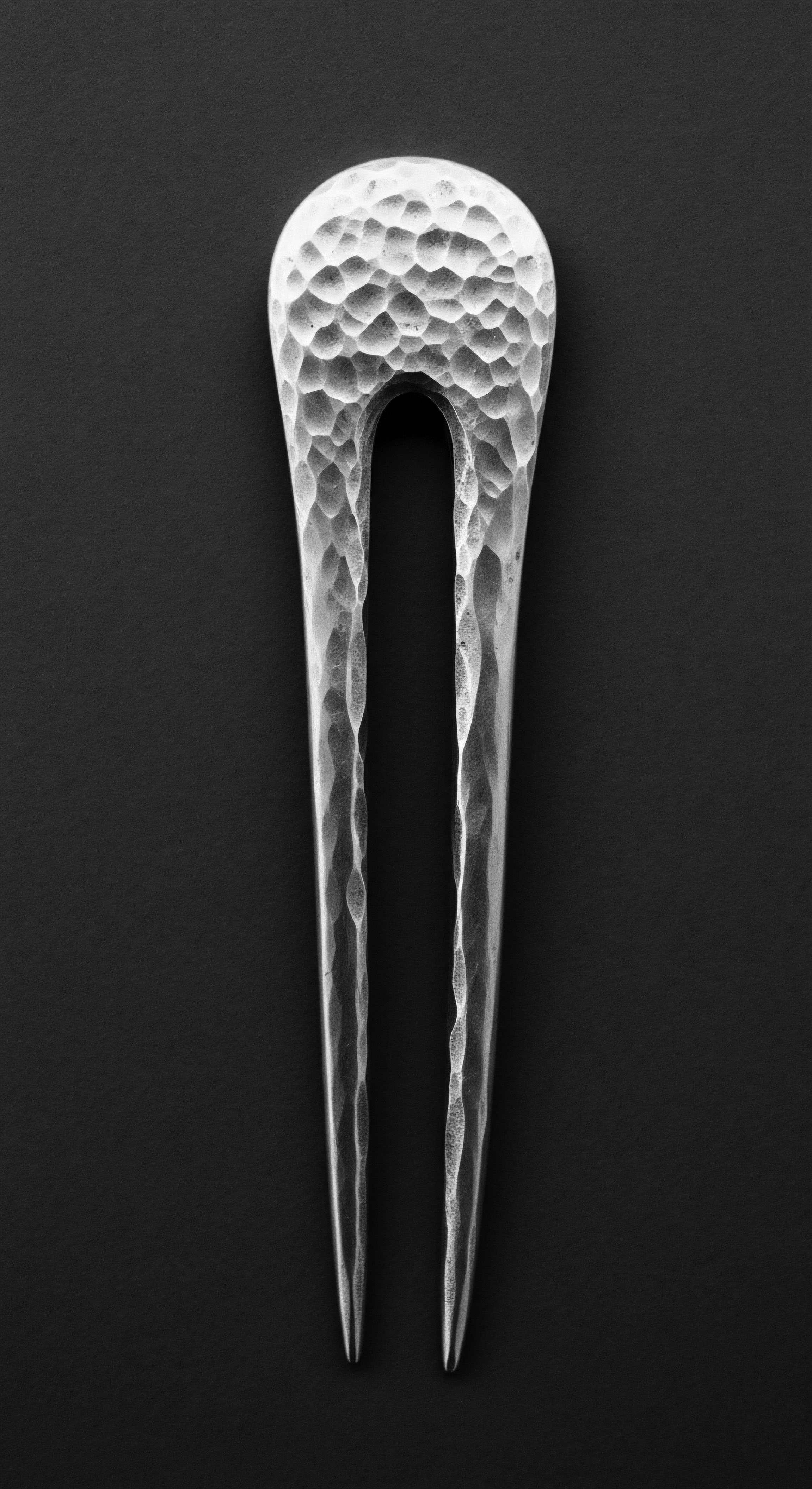
References
- Buccellati, G. (1978). Fresh Data on the Clove from the Old Babylonian Period. Journal of the American Oriental Society, 98(3), 390-391.
- Pereira, A. A. et al. (2013). Clove (Syzygium aromaticum): a precious spice. Brazilian Journal of Pharmaceutical Sciences, 49(2), 209-218.
- Dhingra, D. (2020). The Perfume Project: Journeys Through Indian Fragrance. Self-published.
- Chauhan, N. et al. (2021). Herbal Cosmetics: Used for Skin and Hair. Inventi Rapid: Cosmeceuticals, 1-7.
- Rani, R. & Jena, M. K. (2021). Clove (Syzygium aromaticum): Beneficial effects on human health: A review. Plant Archives, 21(1), 1967-1972.
- Kothari Chhajer, A. et al. (2021). Applications of Antioxidants: A Review. Plant Antioxidants and Health, 1-29.
- Maggini, V. et al. (2024). Antimicrobial Activity of Syzygium aromaticum Essential Oil in Human Health Treatment. Molecules, 29(5), 999.
- Enechukwu, N. A. & Ogunbiyi, A. O. (2022). A review of indigenous therapies for hair and scalp disorders in Nigeria. Dermatologic Therapy, 35(6), e15505.



